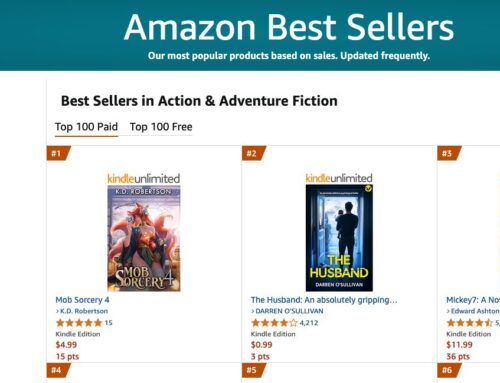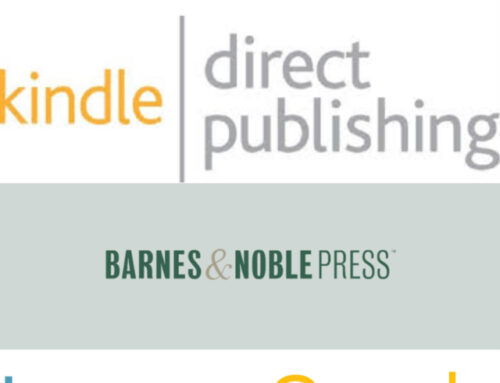 I used to find this quote inspirational, but now it just seems puzzling…
I used to find this quote inspirational, but now it just seems puzzling…
“One man writes a novel. One man writes a symphony. It is essential that one man make a film.”
– Stanley Kubrick
Not to pick an undebatable point with one of the greatest creative minds in recent history, but having produced a novel (yes, produced – more on that later) it’s fairly clear that all the author traditionally does is put the words together pretty. Write the manuscript. What usually follows in the process is turning it over to proofers and editors, lawyers who vet the prose for lawsuits-in-waiting, marketers whose job it is to judge to whom and how to hock the story, which in turn informs the graphic designers who mock up the jacket cover and possibly any accompanying advertising materials (if handled in-house), all overseen by the publisher whose vision greatly supersedes the person who slapped the words together pretty in the first place. Not to mention the ENG crew who may be hired to shoot crisply-lit interviews with the author to be used in the press kit (produced by yet another company entirely) for media outlets who may want to cover the product (yes, product).
Before the switch is thrown on this assembly line, it’s debatable whether the manuscript is really a book or just a pile of papers. Or perhaps it was best argued on an especially subtext-heavy episode of Seinfeld , “It’s a pizza as soon as you put your fists in the dough!” “No, it’s not a pizza until you take it out of the oven!”
But, all the above is pure fantasy if you’re an indie author (the recent rebrand of the dreaded “self-published”). Unless you’re versed in some or all of these skills, or just wealthy (in that case, read no further, you’ve got life on a string!) you’re probably planning to pull in favors, find other skilled creatives who “need to build their portfolios” and enlist friends who will be brimming with enthusiasm to drop whatever they’re working on to help you. But the truth is, you’re not worth it.
The math is pretty simple; if you’re not in the position to hire for pay, none of the following highly-coveted descriptive terms apply to you: wealthy, famous, influential, incredibly charismatic, double-jointed. Because, let’s be brutally honest, if you were two or more of those things you wouldn’t be an “indie author”.
The term “indie” seems to be a more sanitized form of “punk” or “underground”, with the aesthetic implications of photocopied demo tape jackets and monochrome fliers, circa 1980-199something (pre-Photoshop, post-Guttenberg). And that’s essentially what we’re doing, sticking up our own demo albums on the local giveaway shelves until either someone offers us money to do it on their terms or we make enough to pay ourselves a living wage and continue to produce (while screaming “fuck the man” and pretending that we haven’t become exactly that).
But, just as every town in every city has a garage band called either “Section 8” or “The Uninvited”, those very bands need to hire recording equipment, engineers, mixers and producers to get their tracks properly laid down before someone can rip it and upload to Rapidshare. Nevermind CD Baby.
This has nothing to do with the popular notion that “no man is an island”, technically Australia could be considered an island and its socio-economic infrastructure, system of trade and debt is equally as complex and interdependent as any land-locked nation. The difference is, Australia isn’t asking New Zealand or Papua New Guinea to perform professional-level work on it’s latest “great project”, completely unpaid, or worse, for an empty “producer” credit. Sartre would say something like, “We’re all alone in our subjectivity and can never truly know another”. But you probably dropped your copy of “Existentialism And Human Emotions” under the bleachers when campus security came running.
Before complex social networking and mobile communications swung into full force early-mid last decade, it was unquestionably easier to hold the attention of friends and friends-of-friends and people in search of “credits” to actually perform work for days at a time on whatever lowly-budgeted, but highly-aspirational project we were holding together with gaffer tape and unwashed, borrowed cables. Not so much now, when not only are most creative types self-described functional hyphenates (a title once reserved for famous actors who had formed their own production companies to develop vanity projects), they’re constantly on the hustle for the next paying gig. And if not just paying, paying better than whatever paltry day rate you may be offering, likely deferred (i.e., hypothetical). I mean, creatives gotta eat.
But it’s not all so bleak as having to sit quietly and look on while the friend you’ve been desperately coercing, to perform some sort of creative service you can’t do yourself, is far more interested in whatever is coming over their a handheld device than whatever work they’re not currently doing for you. For one, it should be obvious from experience that not only do professional friends wait for social proof and validation from external sources before taking your “project” seriously, more importantly they want whatever it is they’re doing to be the coolest gig in town.
So, what’s the solution? Hire those you don’t know and actually pay. Aside from cash money, information is becoming the ultimate commodity; it lacks any tangible qualities, it’s essentially invisible until used, can be stored for years at a time while, in some cases, not only retaining but building in effectiveness (see: Wikileaks). If you’re even half as savvy as you need to be to function in this era of primarily digital communications you’ve hopefully learned to somewhat control your image and the information widely syndicated about you. People who don’t know you can only form opinions from what you present to them. So, if you’re even half-versed in what you need them to do and are willing to allow them a degree of creative freedom, you’re several-up on most of the self-aggrandizing narcissists who will ask others to meet them for lunch, boast about themselves for forty minutes and then expect them to agree to their polite demands without actually explaining the finer details of what they’d be expected to do, then skipping on the bill. Gotta take this call, be in touch soon. Laters.
Rather than ask the professional, working graphic designers I know, I opted to run the jacket cover design for “Stockholm” through CrowdSource. In the time it would have taken me to beg, badger and bully a friend, I ran the project, vetted nearly a hundred variations and creative directed the winning designer (from Germany, no less) who not only brought my concept to form but improved upon it too, and for less than the going day rate of anyone I know on either coast.
Alternately, I could have posted my “low pay” but “great project” on Craigslist, begging the under-employed and over-zealous to crash my inbox with abuse and misspelled, unpunctuated rants. How many times can one be called a “fucktard” before it loses all objective meaning?
And, I followed this formula for each and every aspect of the production of “Stockholm”. I paid the proofreader who caught all my ridiculous grammatical mistakes. I paid the audio mixer who recorded and mastered my book trailers and made my voice over sound like it was delivered by an actual actor. I paid the web designer who built stockholmbook.com, helped me figure out what I really needed in a website (it’s his specialty, after all) and taught me how to use the thing so I could post long-winded gems like this.
That’s not to suggest none of them offered deals or worked out a negotiable rate, but offering to pay up front was the difference that made the difference, in all cases.
The horrible truth is, I can’t blame anyone I know for not wanting to work for me for free because I’m just not worth it. Not yet, anyway. My name won’t glimmer off a resume, or cinch a killer referral for some bigger, better project. I may be the star of my own narrative in my own first-person-view, endless camera take but so is everyone else. In their own. And they have an incredible project they’re working with the potential to “change everything” too. And they need help doing something they can’t do. And they can’t really pay right now, but…
(this blog post originally appeared on stockholmbook.com)
Get an Editorial Review | Get Amazon Sales & Reviews | Get Edited | Get Beta Readers | Enter the SPR Book Awards | Other Marketing Services






















Leave A Comment